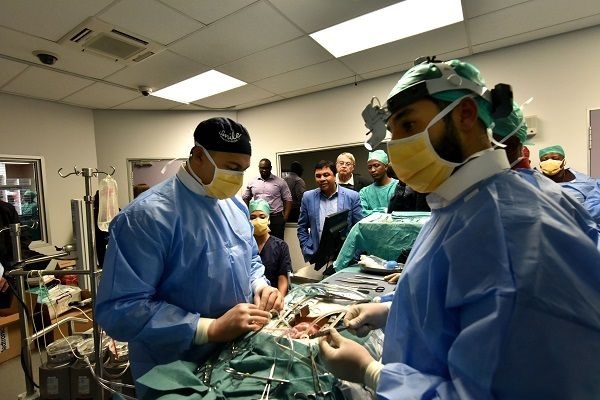
Related
Top stories






More news

Marketing & Media
Ads are coming to AI. Does that really have to be such a bad thing?















It will be used to enhance training for cardiothoracic, cardiology, vascular surgery, anaesthesiology and multi-professional teams such as doctors, nurses and allied health professionals.
“There’s nothing like this in Africa, and only a few in the world,” said Prof Francis Smit, Head of Cardiothoracic Surgery at the Faculty of Health Sciences.
He explained that this new cutting edge medical technology will revolutionise the way cardiac surgeons and other health professionals are trained and assessed.
The simulation facilities give students with various levels of competency the opportunity to practice specific procedures in their own time and at their own pace. The 'patient' is a rubberised model complete with a network of pipes accurately exhibiting the vascular system. A fresh, pulsating pig's heart completes the simulation dummy.
“Traditionally training followed the apprentice model, where surgeons started with simple tasks and worked their way up. They assisted senior personnel and their exposure to procedures depended on the conditions presented by the patients before them,” explains Prof Smit.
The simulation technology now enables them to repeatedly practise a certain procedure without any risk to a patient. A sophisticated electronic grading system gives detailed feedback after each session, so they know in which areas to improve.
The system also allows trainers to create a medical emergency that the trainees then have to deal with.
“Assisting senior surgeons with high levels of competency means that in the past, trainees would often never get the chance to experience these kinds of complications during operating procedures. Now we give them a chance to build that confidence so they’ll be able to handle different situations.”
Prof Smit explained that this technology will also benefit other African countries the UFS has established relationships with. “The UFS cardiothoracic programme is being designed to become a training hub for the whole of Southern Africa, combining distance learning with an on-site high-fidelity simulation and assessment centre.”